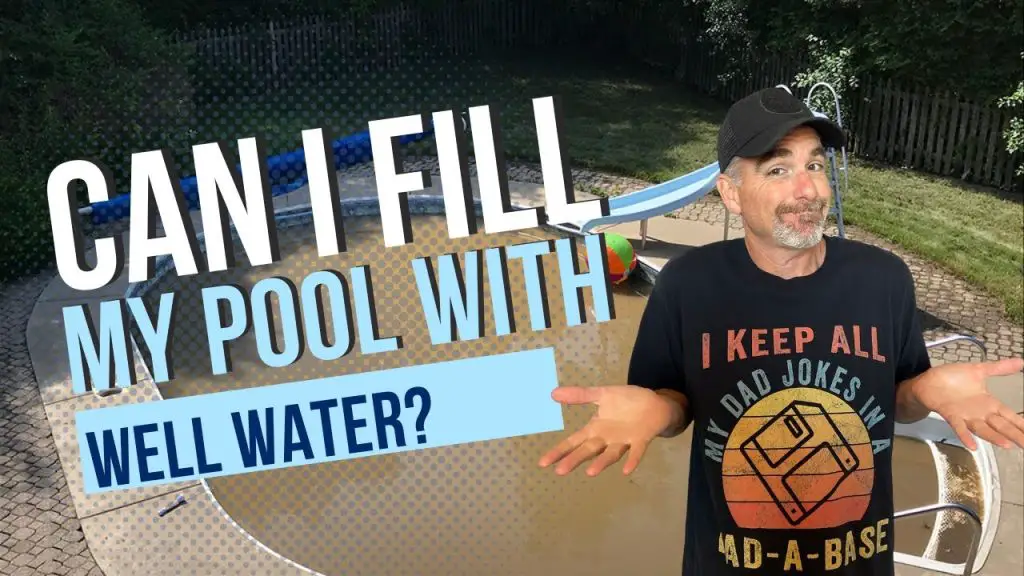If you have a well on your property, you may be wondering if you can use well water to fill your pool. Well water is an alternative water source that many homeowners rely on for various purposes, such as drinking, irrigation, and household chores. However, when it comes to pool water, there are a few considerations to keep in mind. In this article, we will explore the pros and cons of filling a pool with well water.

Credit: www.reddit.com
The Pros of Using Well Water to Fill Your Pool
1. Cost Savings: One of the significant advantages of using well water to fill your pool is the cost savings. Unlike municipal water sources, well water is free. By utilizing your well water, you can avoid the fees charged by your local water utility company.
2. Chemical-Free Option: Well water is typically free from chlorine and other chemicals commonly found in tap water. This can be particularly appealing to those who prefer a more natural swimming experience. Additionally, if you have sensitivities or allergies to chlorine, using well water can provide relief.
3. No Water Restrictions: During periods of drought or water restrictions, homeowners may face limitations on the usage of municipal water. However, with a well, you have your own water supply that is not subject to such restrictions. You can fill your pool without worrying about violating any regulations or incurring fines.
The Cons of Using Well Water to Fill Your Pool
1. Water Quality Testing: Before using well water to fill your pool, it is crucial to have it tested regularly. Well water can contain various minerals and contaminants, such as iron, manganese, and bacteria, which could potentially affect the pool water chemistry. Regular testing ensures that the water is safe for swimming.
2. Staining Potential: Some well water sources have high levels of minerals like iron and manganese, which can cause staining on the pool surface and equipment. To prevent staining, it is essential to treat the water appropriately, using chemicals like sequestering agents or adding a filtration system specifically designed to remove these minerals.
3. Water Quantity: Depending on the size of your pool and the yield of your well, you may face challenges in obtaining enough well water to fill the pool. If your well cannot produce a sufficient amount of water within a reasonable time frame, you may need to explore other options or consider water conservation methods.
Precautions When Using Well Water to Fill Your Pool
1. Conduct Regular Testing: It is crucial to test your well water periodically for pH level, mineral content, and bacteria. This will help you track any changes in water quality and take necessary actions to ensure the safety and cleanliness of your pool.
2. Install a Filtration System: Investing in a good filtration system can help remove minerals and impurities from the well water, ensuring a better swimming experience and minimizing the risk of staining or damage to your pool.
3. Consult a Professional: If you have concerns about the quality or quantity of your well water, consult a professional pool technician or a water specialist. They can assess your specific situation and provide guidance on the best course of action.

Credit: www.youtube.com
Conclusion
In conclusion, using well water to fill your pool can be a cost-effective and chemical-free option. However, it’s vital to consider the potential water quality issues, staining potential, and water quantity. By conducting regular testing, implementing proper filtration systems, and seeking professional advice, you can enjoy the benefits of filling your pool with well water while ensuring a safe and enjoyable swimming experience.





